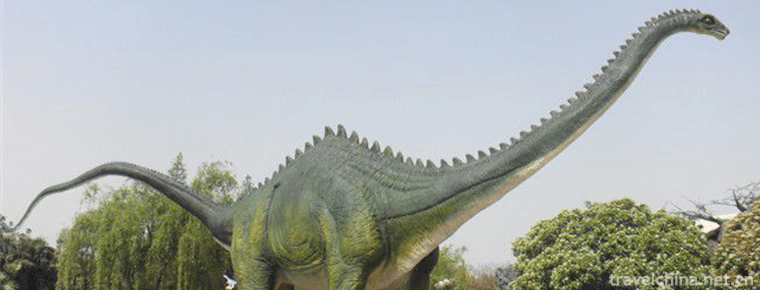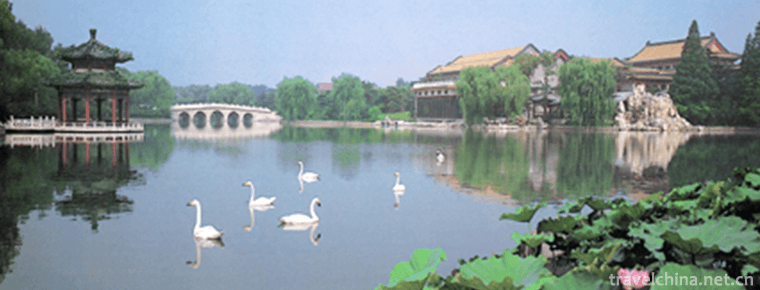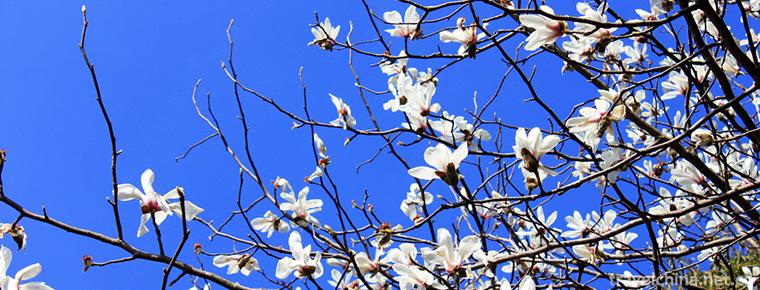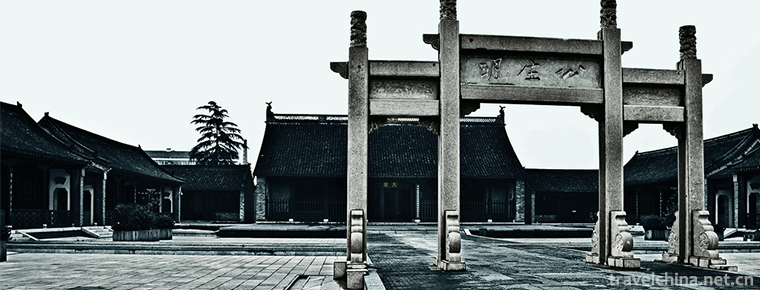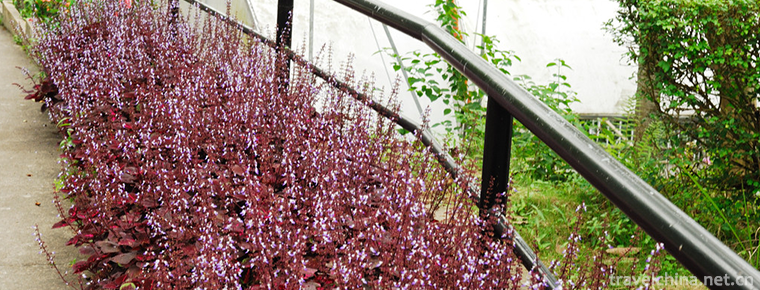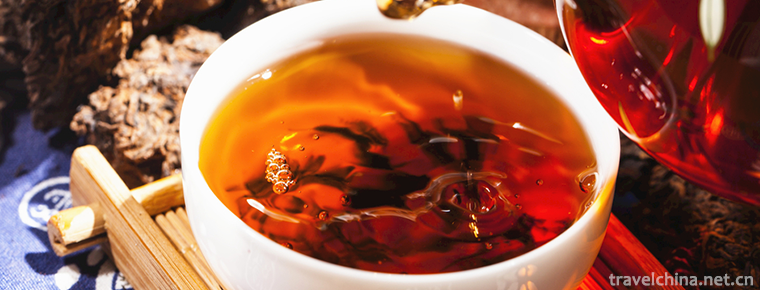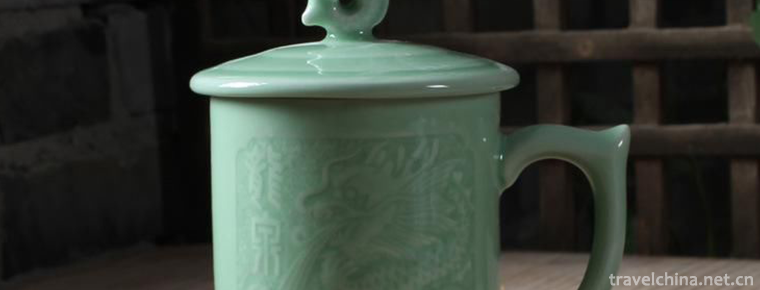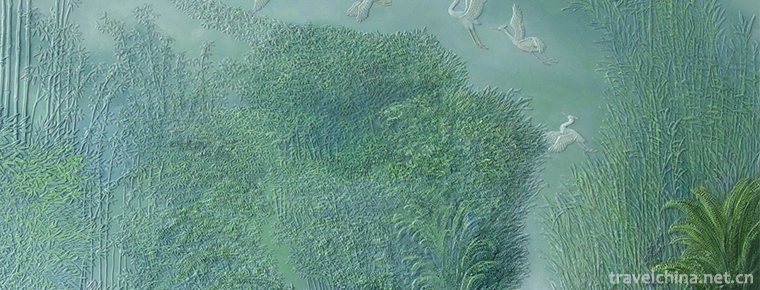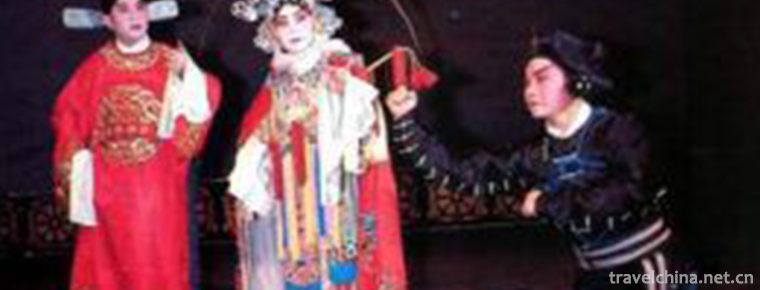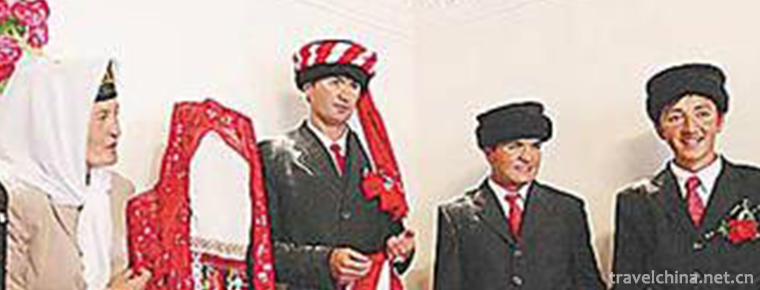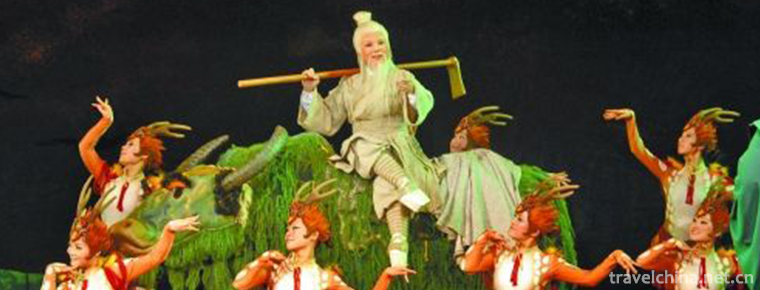Jiangnan Shaoxing opera
Jiangnan Shaoxing opera
Yueju Opera, the second largest opera in China, is also known as "the most widely circulated local opera" . Some people think that it is "the largest local opera", is called "Chinese opera" abroad. It is also one of the five major Chinese operas (Beijing Opera, Vietnam Opera, Huangmei Opera, Commentary Opera and Henan Opera in turn). Originated in Shengzhou, Zhejiang Province, originated in Shanghai, flourished throughout the country and spread throughout the world. In its development, it has absorbed the achievements of Kunqu opera, drama, Shaoxing opera and other special operas. It has experienced a historical evolution from male Yueju opera to female Yueju opera.
Yueju opera is good at lyric, mainly singing, beautiful voice, real and moving performance, beautiful and elegant, very beautiful in the south of the Yangtze River; mostly with the theme of "gifted scholars and beautiful women", there are many art schools, there are 13 recognized schools. Mainly popular in: Shanghai, Zhejiang, Jiangsu, Fujian, Jiangxi, Anhui and other vast southern areas, as well as Beijing, Tianjin and other major northern areas, in the heyday except Tibet, Guangdong, Guangxi and a few other provinces, autonomous regions, there are professional theatre troupes throughout the country.
Yueju Opera is the first national intangible cultural heritage list.
Orion of the Name
"Yueju Opera" originated from "singing books on the ground", and was later called "Women's Class", "Shaoxing Women's Literary Opera", "Du Class", "Grassroots Class Opera", "Small Opera Class", "Shaoxing Opera", "Shaoxing Literary Opera", "Fashion Class", "Shaoxing Opera", "Shengju Opera" and "Renju Opera". For the first time, it was called "Yueju Opera". On September 17, 1925, the "Du Ban" performed at the Small World Amusement Park was first called "Yueju Opera" in the advertisement of "Shenbao". Since 1938, most theatres and troupes have been called "Yueju Opera". However, the appellations in various opera newspapers are still not uniform. Journalists and contributors often use different appellations. In 1939, Fan Dimin, a reporter of Ta Kung Pao and director of Yao Shui Juan's "Yue Yin Stage", was inspired by Li Bai's "Yue Nu Ci", and considered that Shaoxing was the revival base for Goujiansheng, the king of Yue, to defeat Wu. Shengxian, the birthplace of Yue Opera, was one of the Shaoxing genres, and was touched by Yao Shui Juan, the famous actor of Yue Opera, "I want to sing louder and louder, the higher and the farther." Writing articles for the Drama Daily edited by Job Hon, publishing the motives and meanings of Yueju Opera, and informing the audience. Since then, the advertisements of "women's literary drama" in various newspapers have been renamed as "Yueju opera", and after the founding of New China, they have been called "Yueju opera".
Since Shaoxing Opera and Shaoxing Wen Opera were used as names in the early stage of Yueju Opera, the saying that Yueju Opera was called "Shaoxing Opera" was borrowed from "Shaoxing Opera" because there was no name of "Yueju Opera", but "Yueju Opera" was not actually "Shaoxing Opera". However, due to errors, the word "Shaoxing Opera" has also been used in the translation of the title of Yueju Opera. However, the translation of the title of "Yueju Opera" should be "Yue" in the formal expression.
Historical evolution
Pregnant Period: Singing on the Ground
In 1852, Jin Qibi, a peasant from Matang Village, Xixiang, Shengxian County, created "singing on the ground". Ground singing is a popular form of rap in Shengxian County, Zhejiang Province, mainly in Matang Village. It began to evolve into a form of opera performed on grass-roots stage in rural areas. The artists were initially half-farming and half-farming male farmers, so they were called male classes.
Little song class
On March 27, 1906, in front of the incense Hall of Dongwang Village, Shengxian County, four rice barrels were borrowed by the landing calligraphers Yuan Fusheng, Li Maozheng, Gao Binghuo and Li Shiquan to pave the doorboard and perform the minor operas Ten Heads, Ni Feng Fan Cha and the grand opera Double Golden Flowers (the latter half). This is the first stage audition of Chinese Yueju Opera. Yueju Opera (originally known as "Little Opera Class") was born, which is called the Birth Day of Yueju Opera.
On May 13, 1917, Xiaoge Class first entered Shanghai and performed in Xinhua Garden in Shipu. Because of its rough and crude art, the audience was very few. Three subsequent artists came to Shanghai but failed. After learning the performing skills of Shaoxing Grand Class and Peking Opera, the art has been improved. In 1919, the Xiaosong Class began to gain a foothold in Shanghai.
Since 1920, the small Song troupe has concentrated on well-known actors to produce new plays, such as Liang Shanbo and Zhu Yingtai, Jasper Hammer and Meng Lijun. These plays adapted to the rising trend of thought of striving for women's rights and equality between men and women after the May 4th Movement and were welcomed by the audience. After that, Zhou Linzhi, the stage owner of Shengping Song, invited three musicians from Shengxian folk music organization "Opera Guest Class" to form the first professional accompaniment band in the history of Yueju Opera, playing with 15 two-tone fixed chords, following the Shaoxing big class habit, known as "Zhenggong Tune", referred to as "Zhengtong", from then on, "Silk Sine Tune" became the main tune; and using the board style of Shaoxing big class for reference, initially established the board tune. Musical framework.
Shaoxing literary drama
On September 16, 1921, the theatre troupe composed of Fei Cuitang and Yan Huantang performed in the First Theater. On that day, the advertisement of Newspaper first published the name of Shaoxing Wenxi Opera.
From September 1921 to 1922, male class artists changed the name of opera to "Shaoxing Wen Opera" one after another. They absorbed the performance programs of Peking Opera and Shaoxing Opera and developed to the grand costume opera. The repertoire is influenced by Shanghai-style Peking Opera. It mainly produces Lianben Opera and performs in playgrounds such as "Big World" and "New World", as well as in teahouses, hotels and small theatres. The main actors are Xiaosheng Wang Yongchun, Zhi Weiyong, Xiaodan Wei Meiduo, Baiyumei, Jin Xuefang, Laosheng Ma Chaoshui, clown Ma Ashun, Damian Jinrongshui, etc.
In July 1923, Wang Jinshui, a businessman from Shengxian County, invited Jin Rongshui, a male class artist, to return home to run the first female class, which recruited more than 20 girls under the age of 13. On January 14, the next year, the female class performed on the Shanghai Shengping Song Stage, known as the "Fashion Children's Xiaosong Class".
Women's Yueju Opera before Liberation
"Yueju Opera" was first used in the performance advertisement of Shanghai Shenbao on September 17, 1925.
Since January 1928, female classes have flocked to Shanghai. By the second half of 1941, it had increased to 36. Almost all the famous actors of women's Yueju Opera gathered in Shanghai. The newspaper commented that "the women's drama in Shanghai has been popular for a while, but recently it has overtaken everything". The male class was eventually replaced by the female class because there were no successors.
In 1929, Shengxian held the second women's class, which was held after that.
Since the end of 1931, some actresses, such as Wang Xinghua, Chen Miaoxian, Lu Fuzhu and "Dongan Stage" and "Four Seasons Spring Class" have appeared in Shanghai, but they are still mixed performances for men and women. After women's Yueju was established in Shanghai, in order to meet the needs of the environment and the audience, a group of practitioners of Yuejuan, represented by Yao Shuijuan, carried out a transformation called "improved literary drama". Each troupe and class are competing to compile new plays. During the four years from 1928 to 1932, more than 400 new plays were produced, with a wide range of themes, styles and styles. Most of the writers had engaged in "Civilized Drama". The repertoire was generally based on the curtain system. At that time, the main writers were Fanfence, Wen Zhong, Hu Zhifei, Tao Xian, Liu Tao and so on. The diversification of the content of the repertoire causes the corresponding changes in the form of performance, and the trend of learning from the brothers'plays appears. At that time, some Peking Operas of Shanghai school, such as Shang Fangchen's famous play "Hate at the End of Ming Dynasty"; some scholarly applications, such as Shi Yinhua and Tu Xinghua transplanting, staged a suit cheongsam opera "Thunderstorm"; others learned movies and dramas, such as Yao Shuijuan's performance of "Jiang Lao Wu's Memorial" and "Big Family", using realistic scenery and rickshaw to stage. In terms of business methods, feudal stereotypes have been broken down, and managerial system has been implemented to unify front and back office management. During this period, the most famous actors Danjiao was Shi Yinhua, Zhao Ruihua, Wang Xinghua, Yao Shuijuan, Xiao Dangui, and the younger actors such as Yuan Xuefeng, Yin Guifang, Fan Ruijuan, Fu Quanxiang and Xu Yulan had emerged.
Since 1938, most theatres and troupes have been called "Yueju Opera".
In October 1942, Yuan Xuefen took the drama as an example and began to reform the Dalai Theatre. In the past two years, Yuyin (Yao Luding), Han Yi, Lan Ming (Liu), Xiao Zhang, Lu Zhong, Nanwei, Xu Jin and so on have been hired as directors, mostly young amateur dramatists. They call the reformed Yueju Opera "New Yueju Opera".
In September 1944, Yin Guifang and Zhushuizhao also reformed Longmen Theatre. Since then, Shanghai's major Yueju troupes have been involved in the ranks of "New Yueju Opera", and the appearance of Yueju Opera has changed greatly in a few years. The reform of Yueju Opera begins with the compilation of new plays, the establishment of script system and the abolition of the curtain system. Even performing traditional plays, they have been reorganized and adapted. The content of the new play has changed a lot compared with the past. Many directors and major actors attach importance to the social benefits of the plays, advocate positive and beneficial influence on the audience, and compose a large number of plays against feudalism, revealing social darkness and promoting patriotism.
In November 1943, when performing Xiangfei, Yuan Xuefen cooperated with Zhou Baocai, a pianist, to make the previous 2.5-chord singing more standardized. From then on, he began to make the ruler tune form a number of slabs, which are scattered, fast and slow. Later, he developed various counter-tunes of slab tunes, which not only improved the slab structure, but also enhanced the lyricism and drama in the tune of Yueju opera. And it enlarges expressiveness and plasticity.
On January 29, 1945, Yuan Xuefen and Fan Ruijuan performed The History of Liang Zhumourning at Jiuxing Grand Theatre and reorganized the repertoire with the director. During the performance, Fan Ruijuan cooperated with pianist Zhou Baocai to create a "subchord tune". The ruler tuning cavity and the subchord cavity laid the foundation for the emergence of the Yueju school.
In May 1946, the Xuesheng Opera Troupe adapted Lu Xun's novel "Blessing" into "Sister Xianglin", which aroused the attention of the underground organizations of the Communist Party of China to the Yueju Opera and the whole local opera. In September, Zhou Enlai watched the performance of the Snow Sound Theatre Troupe in Shanghai. He also gave instructions and arrangements on how the underground organizations of the Communist Party of China could do a good job in local opera circles. Qian Yingyu and Liu Housheng, members of the Communist Party of China, were assigned to the Yue opera circle as directors. Later, progressives in Shanghai's literary and art circles and the press gave support to Yuan Xuefen's dung thrown by hooligans, the "Ten Sisters of Yueju Opera" (Yuan Xuefen, Yin Guifang, Xiao Dangui, Fan Ruijuan, Fu Quanxiang, Xu Yulan, Zhushuizhao, Zhang Guifeng, Xu Tianhong and Wu Xiaolou) in the joint free performance of "Love in Mountains and Rivers" and in the struggle to vindicate Xiao Dangui.
Development and Glory after Liberation
Shanghai was liberated in May 1949. On April 12, 1950, the first national theatre troupe in Shanghai, the experimental theatre troupe of East China Vietnam Opera, was established.
Shanghai Yue Theatre was officially established on March 24, 1955. The theatre gathered a large number of highly artistic talents such as editors, directors, directors, audiences and the United States. Under the guidance of the CPC's literary and artistic orientation of serving the people and socialism and the policy of "letting a hundred flowers blossom, weeding out the old and bringing forth the new", it played a demonstration role in the national theatre. In addition, a number of collectively owned theatre troupes, such as Fanghua, Yunhua, cooperation and youth, are also very active, and have achieved a lot in their performances.
In March 1951, the East China Opera Research Institute was established, and the Zhejiang Yueju Troupe was formally established in 1954. During this period, more than thirty professional Yueju troupes in Shanghai and seventy professional Yueju troupes in Zhejiang also carried out the work of changing people, operas and systems to varying degrees.
On June 25, 1950, when the Korean War broke out, Fan Ruijuan proposed that the Shanghai Vietnam Opera Circle donate a fighter plane to the Chinese Volunteer Army for Anti-American and Aid Korea. From August 10 to mid-September, a joint charity performance was held at the Mass Theatre. The performances include "Xinghua Village", "History of Liang Zhu'ai" and traditional operas. The older generation of artists in Yueju Opera donated 170,000 yuan from the performance to the Air Force Department of the Volunteer Army, which led to the birth of the "Yueju number - Luxun fighter plane".
On National Day in 1951, Fan Ruijuan was elected a member of the National Youth Federation in Beijing and an invited representative of the CPPCC. During the CPPCC National Committee meeting, Chairman Mao Zedong cordially met Fan Ruijuan and talked with her. The Shanghai Vietnam Opera Circle's action was praised by a letter from the Shanghai Literature and Art Circle's Anti-American and Aid North Korea Support Association.
On April 24, 1953, Xu Yulan and Wang Wenjuan's General Administration and Vietnam Opera Troupe crossed the Yalu River and came to the volunteer army of anti-American and aid Korea. He performed in the 64, 36 and 34 armies, and assisted in the repatriation of prisoners of war in Panmunjom. On behalf of the Central Committee of the Korean Labor Party, Kim Il Sung awarded Xu Yulan and Wang Wenjuan three-level national flag medals of the Democratic Republic of Korea, and the headquarters of the Volunteer Army gave Xu Yulan and Wang Wenjuan second-class merits.
At the end of 1953, the first color opera art film of New China, Liang Shanbo and Zhu Yingtai, became popular and set a box office record in Hong Kong. During the Geneva Conference, this film was repeatedly used by Zhou Enlai to entertain politicians and journalists of various countries . It was praised as "Romeo and Juliet of the East", and international public opinion on the development of red traditional Chinese culture. The suspicion is melted away. The world-renowned Violin Concerto Liang Zhu also originated from the Yueju opera aria. The film Liang Shanbo and Zhu Yingtai has expanded the influence of Yueju Opera at home and abroad, and won a good reputation.
In May 1960, Guan Sen, composer of Shanghai Yueju Theatre, wrote a draft of "Research on the Singing of Yueju Opera", in which he analyzed the singing characteristics of 6 people (Yin Guifang has been transferred to Fujian but not included) such as Yuan Xuefen, Fan Ruijuan, Fu Quanxiang, Xu Yulan, Qi Yaxian and Lu Jinhua, which are called "genres". In April 1962, the manuscript was duplicated as "Opera Music Lectures" by the Department of Opera and Literature of Shanghai Theatre Academy, and circulated among colleagues. After that, Zhou Dafeng of Zhejiang Yueju Opera Troupe made a more in-depth study and Discussion on the singing tunes of Yuan Xuefen, Fan Ruijuan, Fu Quanxiang, Xu Yulan, Yin Haofang and Qi Yaxian. He wrote a draft of "Yueju School of Songs", which was copied and published by Zhejiang People's Publishing House in 1981.
In 1962, the film A Dream of Red Mansions, produced by Shanghai Yan Film Studio and Hong Kong Golden Sound Film Company, made 200 million box office tickets around 80 years ago (at that time, the ticket price was about 20 cents), and 1.2 billion people watched it, which is unprecedented . Since then, a song "Sister Lin Falling from the Sky" has been sung in the north and south of the Yangtze River.
In 1964, according to the singing style of famous actors in Zhejiang Province, which is unique to themselves and obviously located in the "six schools of Shanghai", the opera music experts in Zhejiang Province, He Renzhong, Lu Bingrong, Zhou Dafeng and Chen Xianyu, announced that there are four schools of Yueju Opera for young girls in Zhejiang Province: Chen Peiqing School, Mao Peiqing School, Jinbaohua School, Gao Aijuan School, and Zhejiang School founded by Zhou Dafeng. The basic male tune in the co-performance of men and women in Yueju Opera.
During the golden period of Yueju Opera in the 1950s and early 1960s, a number of influential works of art were created, such as Liang Shanbo and Zhu Yingtai, The Story of the West Chamber, A Dream of Red Mansions, Xianglin Sister, etc. They have gained great fame at home and abroad, such as Emotional Exploration, Liwa Biography, Chunxiang Biography, Jade Ham, Peacock Flying Southeast, He Wenxiu, Cailou Ji, etc. Jinzhi, Bloody Handprints and Li Xiuying have become excellent repertoires. Among them, Liang Shanbo and Zhu Yingtai, Love Detection, Fish Pursuit, Jade Hammer and A Dream of Red Mansions have also been filmed, making Yue Opera more popular in the north and south of the Yangtze River. With the development of socialist construction, Yueju opera began to move from Shanghai to the whole country. By the early 1960s, Yueju Opera had spread to more than 20 provinces and cities, and its influence was expanding day by day.
The Cultural Revolution was at a low ebb
Since the "Cultural Revolution" in 1966, Yueju Opera has been severely devastated. A group of famous actors, creators and management cadres were persecuted, and Yueju opera was forced to stop playing.
Revival of Yueju Opera after the Cultural Revolution
After the Cultural Revolution, Yueju Opera was revived. In 1977, 1978 and 1981, Yueju Opera created and performed the "Soul of Loyalty", "March Spring Trend" and "Lu Xun in Guangzhou" co-starring by men and women, which created the images of Mao Zedong, Zhou Enlai and Lu Xun in modern history. The Yue Opera Troupe at the district level, which was forced to disintegrate during the Cultural Revolution, was partly rebuilt and artistic activities resumed.
At the beginning of the reform and opening-up in 1980, the national professional theatre circle resumed the award system for the first time. With the transition from planned economy to market economy, Zhejiang Yueju circle set off a boom of small flowers around 84 years ago. The young Yueju actors in Shanghai Yueju circle also emerged in various radio, television competitions and performances of Shanghai Youth Actors Association. Li Huikang, a critic of Yueju Opera, published the article "Reshaping the Image of Yueju Opera in Shanghai" in Shanghai Culture and Art Daily on March 9, 1990. After this article was published, it aroused a warm response in the theatrical circles and the press in Shanghai, Zhejiang, Jiangsu and even Beijing. Shanghai Culture and Art Daily has a special column for this purpose, and has selected and distributed articles from all over the country for discussion. Shanghai, Zhejiang and Vietnam theatre circles also jointly held large-scale seminars for this purpose, which played a considerable role in the handover of old and new Vietnamese operas. A prominent feature of Yueju Opera in the new period of reform and opening up is that its artistic ideas are more liberated and its artistic concepts are more open. In the creative performance, the theme and style are more diverse, and the second creation is more committed to absorb the achievements of modern art and make bold exploration.
On the morning of March 27, 2006, Hangzhou held the 100th anniversary congress of the birth of Chinese Yueju opera, which officially opened the prelude to the centenary commemoration of Yueju opera. The celebrations also included the unveiling ceremony of the Centennial monument of Yueju Opera and the founding ceremony of Zhejiang Xiaobaihua Art Center; the Centennial Summit Forum of Chinese Yueju Opera; entertainment performances of high-quality plays and some excellent performances; series activities of "Yueju Opera Centennial Hometown Travel", "Yueju Centennial" and "playback of classic Yueju movies"; and mass cultural activities of Yueju Opera Centennial. The celebration lasted until the "Chinese Vietnam Opera Festival" held in Shaoxing in October. During this period, Zhejiang Xiaobaihua Yue Opera Troupe and Shaoxing Xiaobaihua Yue Opera Troupe presented classic plays.
On May 20, 2006, Yueju Opera was approved by the State Council to be included in the first batch of national intangible cultural heritage lists.
On July 24, 2006, the Vietnam Opera Young Actors TV Challenge Competition, co-sponsored by CCTV and Shanghai Wenguang News and Media Group, opened on the Yifu Stage in Shanghai. The event is divided into three major competition areas: Shanghai, Hangzhou and Shaoxing.


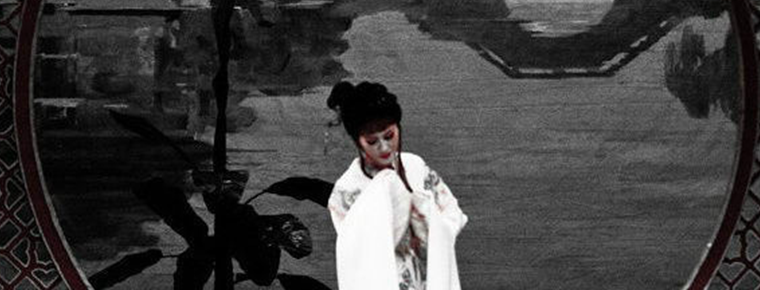
-
Global Dinosaur City Scenic Spot
The National 5A Tourist Scenic Spot Global Dinosaur City, located in Xinbei District, Changzhou, Jiangsu Province, is a comprehensive tourism resort with dinosaur theme.
Views: 274 Time 2018-12-06 -
Diaoyutai State Guest House
Diaoyutai State Guest House is an ancient imperial garden and modern State Guest House complex located on the east side of Yuyuantan (39 55'N 116 19'E) in Haidian District, Beijing, China.
Views: 203 Time 2018-12-13 -
Haitangshan Scenic Area
Haitangshan Mountain is one of the top ten scenic spots in AAAAAA, National Forest Park, National Nature Reserve, Provincial Key Cultural Relics Protection Unit and Province.
Views: 147 Time 2019-01-13 -
Huaian Government Office
Huai'an government office is located in Huai'an City, Jiangsu Province, which is a national AAAA tourist attraction. It is located in Dongmen Street, Huai'an District, the old city of Huai'an, north o.
Views: 91 Time 2019-01-17 -
Yongji Ecological Park
Yongji Eco-Park is located in Daling Town, Huidong County, Huizhou City, Guangdong Province. It covers an area of about 1300 mu. It was solely invested and constructed by Hong Kong Yongji Food Group i.
Views: 427 Time 2019-03-05 -
Production Techniques of Black Tea
Qimen Black Tea is the only black tea among the top ten famous teas in China. It is produced in Qimen County, Anhui Province. Tea production in Qimen has a long history, which can be.
Views: 142 Time 2019-05-03 -
Firing Techniques of Longquan Celadon
Longquan celadon firing technology, the traditional ceramic technology of Longquan City, Lishui, Zhejiang Province, is one of the national intangible cultural heritage..
Views: 118 Time 2019-05-14 -
Ou sculpture
Ou sculpture, commonly known as color oil-pickle sculpture, also known as "color relief", is a unique folk art in Wenzhou, Zhejiang Province, one of the local traditional arts and crafts. It.
Views: 172 Time 2019-06-08 -
Qiyang minor
Qiyang in the north of Yongzhou is a kind of traditional opera widely spread. After a long period of evolution and development, it has formed a traditional folk art form with strong local color,.
Views: 133 Time 2019-06-10 -
Tajik Marriage Customs
On the Pamir Plateau, which is more than 4000 meters above sea level, there is a Tajik people living in China. This is a people who can sing, dance and hospitality. Their life is full of mystery, and .
Views: 113 Time 2019-06-17 -
Extra tune
In addition to the form of opera, Yue Diao has two branches, namely, opera and puppet. In 1942, there was a severe drought in Henan Province. During this period, many cross-tone artists (such as Zhang.
Views: 263 Time 2019-07-16 -
Overview of Guangyuan
In 2019, the GDP of Guangyuan will reach 94.185 billion yuan, an increase of 7.5% over the previous year, which is the same as that of the whole province. Among them, the added value of the primary industry was 15.301 billion yuan, an increase.
Views: 349 Time 2020-12-15
